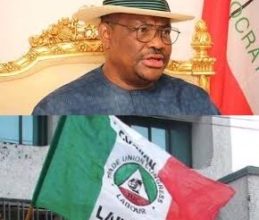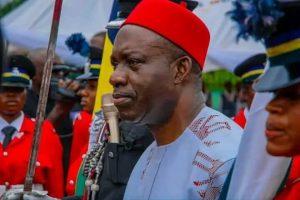
FG Approves Nigeria’s National Blockchain Policy: What It Means for You and the Future of the Digital Economy
Yes, that’s correct, you’re referring to the Federal Executive Council (FEC) meeting held on May 3, 2023 (announced publicly on May 4), where the Council, led by then-President Muhammadu Buhari, formally approved Nigeria’s National Blockchain Policy.
Vision & Objectives
The initiative aims to institutionalise blockchain technology across the government and private sectors to enhance secure transactions, data integrity, and efficient value exchange.
It aligns with the Seventh Pillar of the National Digital Economy Policy and Strategy (NDEPS) launched in November 2019, focusing on digital society and emerging technologies.
Institutional Framework
NITDA (National Information Technology Development Agency) will coordinate implementation under the supervision of the Federal Ministry of Communications and Digital Economy.
A multi-sectoral Steering Committee was established to oversee deployment.
Regulatory Direction
The FEC mandated key regulators, including the CBN, SEC, NCC, NUC, and others, to develop sector-specific regulatory instruments.
It urged all levels of government and the private sector to adopt blockchain solutions in areas like finance, healthcare, agriculture, security, and education.
Economic Potential
The policy references a PwC estimate projecting that blockchain could contribute up to $1.76 trillion to global GDP by 2030.
Nigeria joined a global cohort of countries, including the UK, Estonia, Switzerland, Singapore, UAE, and Denmark, recognising blockchain at the national level.
What does this mean in Practice?
Improved Governance: By enhancing data tracing and transparency, blockchain could greatly reduce fraud and improve public service delivery.
Digital Economy Growth: Encouraging innovation and investments in fintech, agriculture, healthcare, supply chains, and more.
Regulatory Activation: Key agencies are now tasked with crafting frameworks to guide safe, sustainable blockchain adoption.
Sandbox Environments: NITDA’s vision includes regulated testbeds to pilot applications, critical for tech-led investments and solutions.
What’s Next?
A formal rollout: Regulatory instruments from bodies like the CBN and SEC are being developed.
More pilot projects: Expect public–private partnerships across sectors to test blockchain solutions.
Enabling the ecosystem: The strategy outlines incentives for startups, regulatory clarity, legal frameworks (e.g., via the Startup Act 2022), and sandbox environments to foster growth.
Check Out: Tinubu Arrives at Kaduna Government House Ahead of Key Arewa Session
Bottom line: The FEC approval marks a major milestone in Nigeria’s digital transformation, establishing the policy framework, governance mechanisms, and regulatory green light needed for blockchain to take root and grow across critical sectors.
Check Out: Insurgents Kill Two Officers, Five Soldiers in Kala Balge, Borno | Army Confirms
Check Out: A Girl From Kano Won 2nd Place In The International Qur’anic Recitation Competition In Dubai
Check Out: Nigeria Approves COVID-19 Booster Shots
Discover more from Labaran Yau
Subscribe to get the latest posts sent to your email.



















